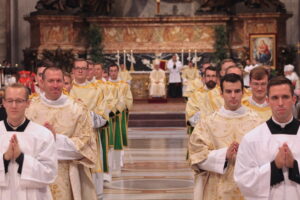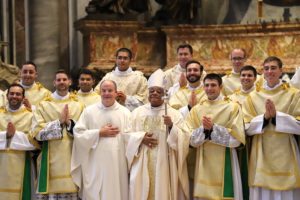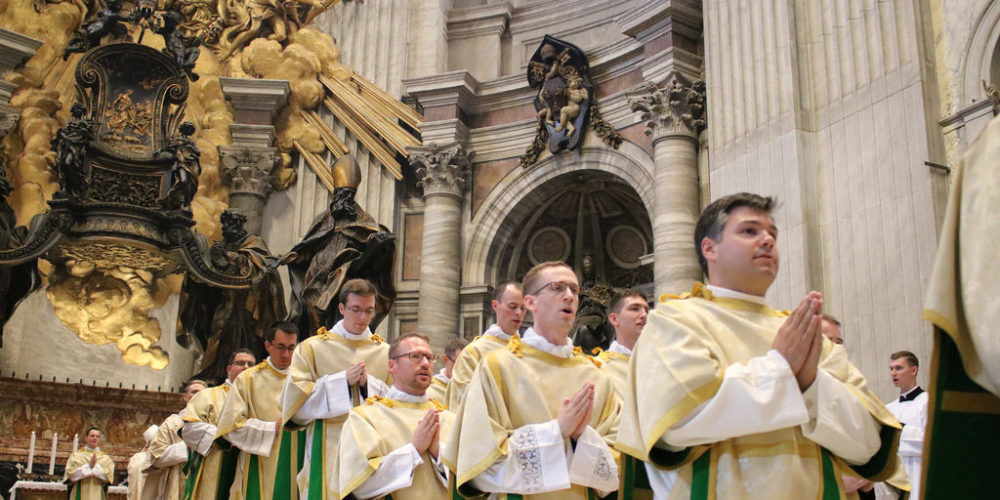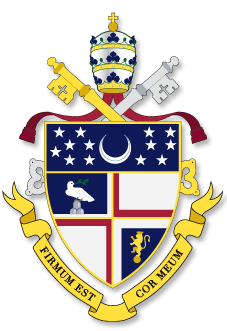The Diaconate
 The first deacons were a group of seven men who were chosen to serve the early Christian community. It was a time of rapid growth for the Church, and complaints started arising that some of the widows of the community—a very vulnerable group in the ancient world—were not being cared for properly. The Apostles knew that such neglect was unacceptable in a Christian community, but at the same time, they recognized that they had an obligation to continue preaching the Gospel as the Lord had commanded them. Realistically assessing the situation, they saw that time constraints would prevent them from personally fulfilling this two-fold duty to feed the hungry and to bring the message of Jesus Christ to the world. So they gathered the rest of the disciples together, explained their dilemma concerning the neglected widows, and asked them to “pick out from among you seven men of good repute, full of the Spirit and of wisdom, whom we may appoint to this duty” (Acts 6:3).
The first deacons were a group of seven men who were chosen to serve the early Christian community. It was a time of rapid growth for the Church, and complaints started arising that some of the widows of the community—a very vulnerable group in the ancient world—were not being cared for properly. The Apostles knew that such neglect was unacceptable in a Christian community, but at the same time, they recognized that they had an obligation to continue preaching the Gospel as the Lord had commanded them. Realistically assessing the situation, they saw that time constraints would prevent them from personally fulfilling this two-fold duty to feed the hungry and to bring the message of Jesus Christ to the world. So they gathered the rest of the disciples together, explained their dilemma concerning the neglected widows, and asked them to “pick out from among you seven men of good repute, full of the Spirit and of wisdom, whom we may appoint to this duty” (Acts 6:3).

Deacons today continue in this tradition. The name itself comes from the Greek “to serve,” and deacons exercise this service in a variety of ways. As the Catechism summarizes, “among other tasks, it is the task of deacons to assist the bishop and priests in the celebration of the divine mysteries, above all the Eucharist, in the distribution of Holy Communion, in assisting at and blessing marriages, in the proclamation of the Gospel and preaching, in presiding over funerals, and in dedicating themselves to the various ministries of charity” (CCC #1570).
The duties of deacons, then, all revolve around this ministry of service, both in assisting the worship of the community, and in exercising works of charity. Their service benefits the whole people of God—both the priests and bishops whom they assist, and the people who profit from their ministry. Their role within the greater community—then as now—aids the growth of the whole body of Christ, the Church.

